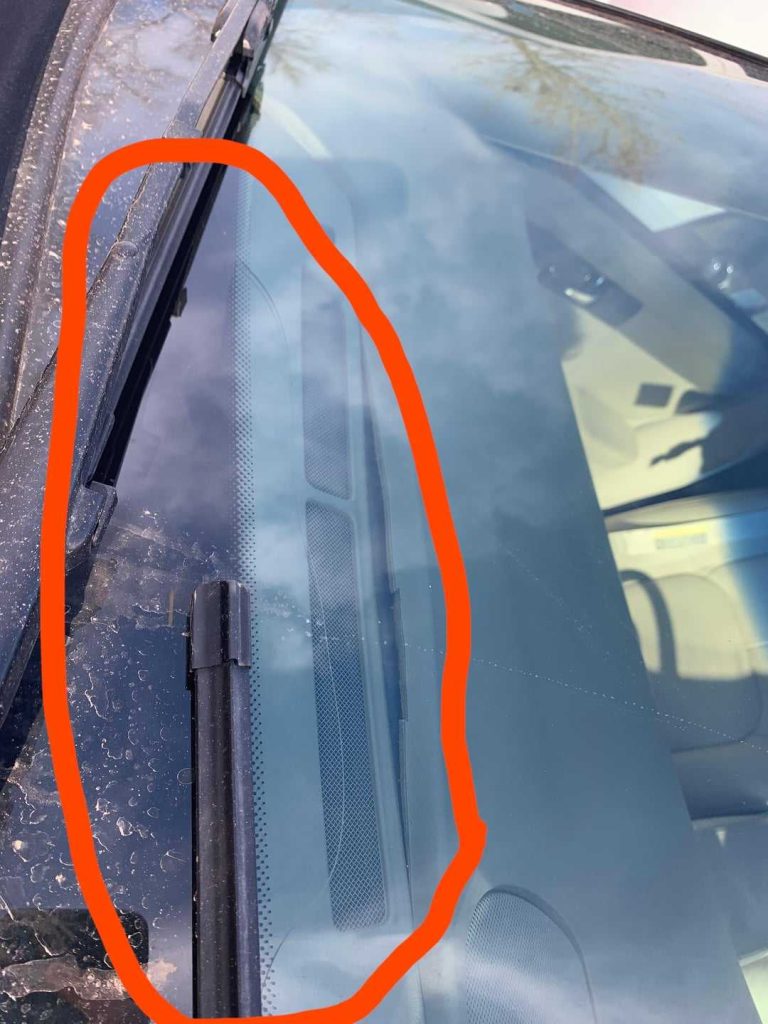Yes, minor scratches on car glass can often be polished out or repaired, but deep gouges may require professional replacement. Quick fixes like polishing or applying specific glass repair kits can restore clarity if the scratches are superficial. For deeper damage, consulting a specialist is usually necessary to ensure safety and optimal results.
Scratches on car glass can be frustrating, especially when they begin to obscure your view or detract from your vehicle’s appearance. Fortunately, not all scratches are permanent. Some minor surface imperfections can be addressed with simple DIY methods, such as polishing compounds or glass repair kits, saving you time and money. However, it’s important to assess the depth of the scratch—superficial scratches tend to be fixable, while deeper ones might need professional intervention. Knowing the extent of the damage can help you decide whether to attempt a repair yourself or seek expert assistance. Keep reading to learn how to identify the severity of scratches and the best ways to fix them effectively.
Can You Fix Scratches on Car Glass?
Understanding Car Glass and Why It Gets Scratched
Car glass, especially the windshield and windows, is made from tough but delicate materials like tempered glass and laminate. Scratches on these surfaces happen due to dirt, debris, or everyday wear and tear. Recognizing the cause helps in choosing the right repair method.
Types of Scratches on Car Glass
Not all scratches are the same. Some are surface scratches that only affect the outer layer, while others are deeper and reach the laminate or glass core. Surface scratches are usually easier to fix, whereas deep scratches might require professional help. Common types include:
- Light scratches: Tiny marks that don’t break the surface.
- Deep scratches: Visible grooves that penetrate the surface layer.
- Sandblasting or etching: Damage caused by harsh cleaning methods or debris.
Can You Fix Small Scratches on Car Glass?
Yes, small surface scratches often can be repaired at home. These minor blemishes usually do not compromise the safety of your vehicle. You can try simple repair techniques with household items or specialized products.
Tools and Materials Needed for Fixing Scratches
Before starting repairs, gather these tools:
- Vehicle glass polish or scratch remover
- Microfiber cloths or soft polishing pads
- Water and soap for cleaning
- Rubbing alcohol or glass cleaner
- Polishing compound for deeper scratches
- Optional: Clear nail polish for minor surface blemishes
Having these ready can make your repair process smoother.
Step-by-Step Guide to Fixing Minor Scratches
Follow these steps for a safe repair:
- Clean the glass thoroughly using soap and water to remove dirt and debris.
- Dry the surface completely with a microfiber cloth.
- Apply a small amount of glass polish or scratch remover to a soft cloth.
- Rub gently in circular motions over the scratched area.
- Allow the product to sit according to manufacturer instructions.
- Buff the area with a clean cloth until smooth.
Repeat if necessary, but avoid over-polishing to prevent further damage.
How to Fix Deeper Scratches on Car Glass
Deeper scratches may need more advanced techniques or professional intervention. Attempting DIY fixes on serious damage might worsen the problem. Consider these options:
Using a Polishing Compound
A specialized polishing compound can sometimes reduce the appearance of deeper scratches. Be sure to select a product compatible with automotive glass.
Using Rubbing Compound or Fine Sandpaper
For very deep scratches, some people cautiously use fine grit sandpaper or rubbing compound. This requires careful application to avoid weakening the glass or causing additional scratches. Always test on a small area first.
Applying Clear Nail Polish
As a temporary fix, clear nail polish can fill shallow scratches. Apply a thin layer, let it dry, then buff gently. This method is quick but not permanent.
When to Seek Professional Help
If scratches are deep, cover a large area, or affect the driver’s visibility, consult a professional. Repair shops have specialized tools and expertise for various types of damage. They might suggest options like glass polishing, filling, or even replacing the glass for safety reasons.
Preventing Scratches on Car Glass
Prevention saves time and money. Follow these tips:
- Regularly clean your glass with gentle cleaners and soft cloths.
- Avoid using abrasive scrubbers or harsh chemicals.
- Park your vehicle in shaded or covered areas to reduce debris exposure.
- Be cautious when removing ice or snow, using plastic scrapers instead of metal tools.
- Install protective films or coatings if possible for added durability.
Additional Tips for Maintaining Car Glass
Maintaining your glass improves longevity and appearance:
- Inspect your windshield and windows frequently for scratches or chips.
- Address small damages early to prevent worsening.
- Use windshield wipers properly, replacing worn blades regularly.
- Opt for professional windshield treatments like ceramic coatings for added scratch resistance.
Related Topics: Glass Repair and Replacement
In cases where damage is extensive, repair might not be enough. Consider:
- Full glass replacement for severe scratches or cracks.
- Upgrading to laminated or tempered glass with enhanced scratch resistance.
- Investing in windshield protection films to guard against future damage.
Cost Considerations for Fixing Scratches
DIY solutions cost very little but may have limited effectiveness. Professional repairs can range from moderate to high costs depending on the extent of damage. Replacing the entire glass is usually the most expensive option. Always evaluate the severity of scratches before deciding on the best approach.
Safety and Legal Aspects of Car Glass Repair
Your windshield and windows play crucial roles in safety. Damaged glass can impair visibility and compromise vehicle integrity. Many regions have laws regarding the minimum acceptable condition of vehicle glass, so timely repairs protect you and comply with legal standards.
The Bottom Line
While minor scratches on car glass can often be fixed at home with simple products and techniques, deep or extensive damage may need professional attention. Proper maintenance and quick action help keep your vehicle looking good and safe on the road. Always consider the severity of scratches to choose the most effective and safe repair method.
How to Repair Windshield Scratches
Frequently Asked Questions
Can minor scratches on car glass be repaired without replacing the entire windshield?
Yes, minor scratches can often be repaired using specialized polishing techniques that remove or diminish the appearance of the scratches. These methods involve polishing compounds and tools designed to smooth the glass surface, restoring clarity. However, if the scratches are deep or extend across a large area, replacing the windshield might be the best option to ensure safety and durability.
What methods are available to fix scratches on car glass at home?
Some minor scratches can be addressed with DIY approaches, such as using glass polishing kits or rubbing compounds. These kits typically include polishing pads and compounds formulated for glass. It’s important to follow instructions carefully to avoid worsening the damage. For deeper or more widespread scratches, professional intervention is recommended to prevent further harm.
Does the location and depth of a scratch affect the possibility of fixing it?
Absolutely. Surface-level scratches that do not penetrate deeply into the glass are easier to repair and often respond well to polishing. On the other hand, scratches that are deep or located in critical visibility areas may compromise the structural integrity of the glass, making repairs less effective or unsafe. A professional assessment can determine the best course of action based on the scratch’s characteristics.
Are there professional services specifically for repairing scratches on car glass?
Yes, many auto glass specialists offer repair services for scratches, especially minor to moderate ones. These experts use specialized equipment and techniques, such as glass polishing and microabrasion, to reduce the appearance of scratches. For severe damage or cracks, they may recommend replacing the glass to ensure safety and compliance with vehicle standards.
Will fixing scratches on the windshield affect my vehicle’s warranty or insurance coverage?
In most cases, repairing scratches does not impact your vehicle’s warranty or insurance coverage. However, it’s wise to check your policy details or consult with your insurance provider before proceeding. Some insurance plans may cover professional repairs, which can save you costs and ensure the work is done correctly.
Final Thoughts
You can often fix minor scratches on car glass using DIY kits or polishing compounds. For deeper scratches, professional repair might be necessary to ensure safety and clarity. While some scratches are fixable, others require replacing the glass entirely.
Can you fix scratches on car glass? The answer depends on the severity of the scratch and the repair method chosen. Addressing scratches early prevents further damage and maintains your vehicle’s visibility and safety.



